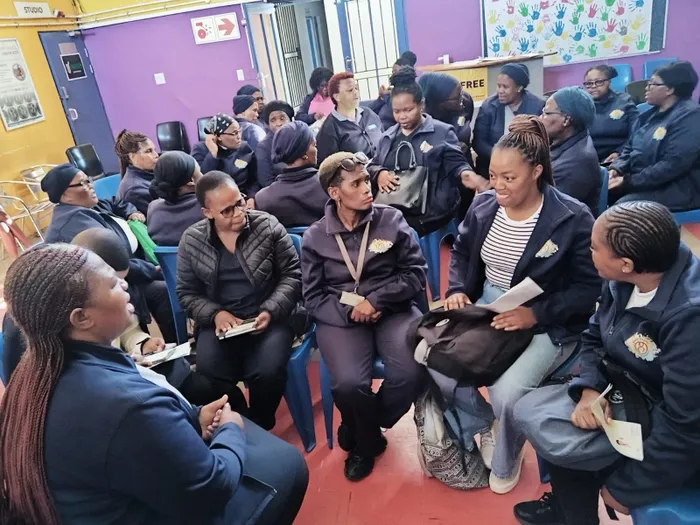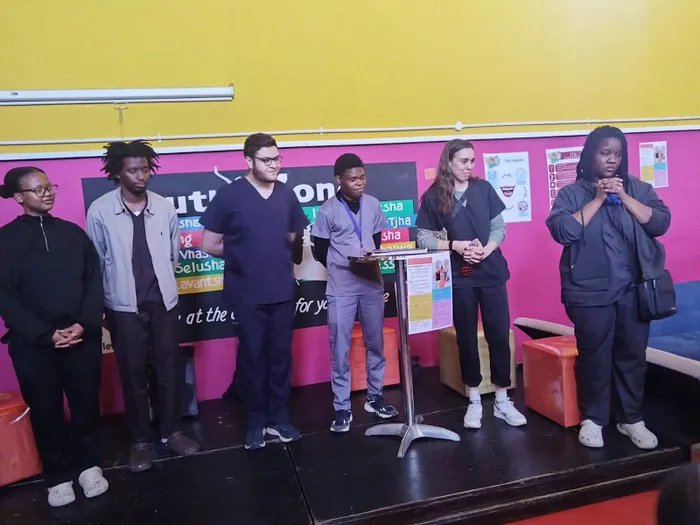
Community health workers and students in discussion.
Image: Phiri Cawe

Health workers discuss health issues.
Image: Phiri Cawe

Students Anele Magutshwa, Boitumelo Mhdaweni, Ammen de Villers, Neo Nemadzivhanani, Naomi Scheepers, and Khethiwe Nkosi.
Image: Phiri Cawe
Medical students from the University of Cape Town (UCT) have urged home-based healthcare workers to encourage people to adopt healthy sexual practices.
The fourth-year students visited Langa on Monday, September 1.
The students aimed to address the knowledge gap by explaining the differences between pre-exposure prophylaxis (PrEP) and post-exposure prophylaxis (PEP) to community health workers and volunteers.
They also sought to encourage more open conversations about sexual health, enabling these workers to educate others in the community. Through this initiative, they hoped not only to share knowledge but also to contribute to reducing stigma and empower the community with information to protect their health.
Student Anele Magutshwa said they are a group of fourth-year medical students from UCT, and over the past few weeks, they have been working with community health workers in Langa on a health promotion project.
This project, she said, formed part of our Health in Context rotation, which provided them with the opportunity to learn about medicine while engaging with the community.
"We began by touring Langa to better understand its history and context, and then we met with local healthcare workers on two occasions to prepare for the event," she said.
During these meetings, she said, they learned more about the challenges faced by the community, particularly the high burden of HIV and the growing interest in preventative methods.
One of the main concerns raised was the confusion between PrEP and PEP .
"Many community members had heard of both but were unsure about how they differed or when each should be used."
Another student, Ammen de Villers, urged healthcare workers to spread the word of safe sex. “Speak to your friends about PrEP. You take it continuously for 21 days. It is important to have healthy sex practices,” he said.
The community health workers were also given a platform to ask questions. At one point, they were split into groups of six to discuss various issues. They did not disappoint and demonstrated considerable knowledge on health matters.
The education session was well-received by about 100 community workers, who admitted that the information was new to them. Some expressed that they could now differentiate between PrEP and antiretrovirals.
Community health worker from Khethimpilo, Vuyiswa Msizi said: “We learned a lot from them. Information like this is important to us because we work with the communities. We are foot soldiers, so we have every right to be fully informed. We thank them and wish them the best of luck in their studies. They have shown true leadership."
Related Topics: